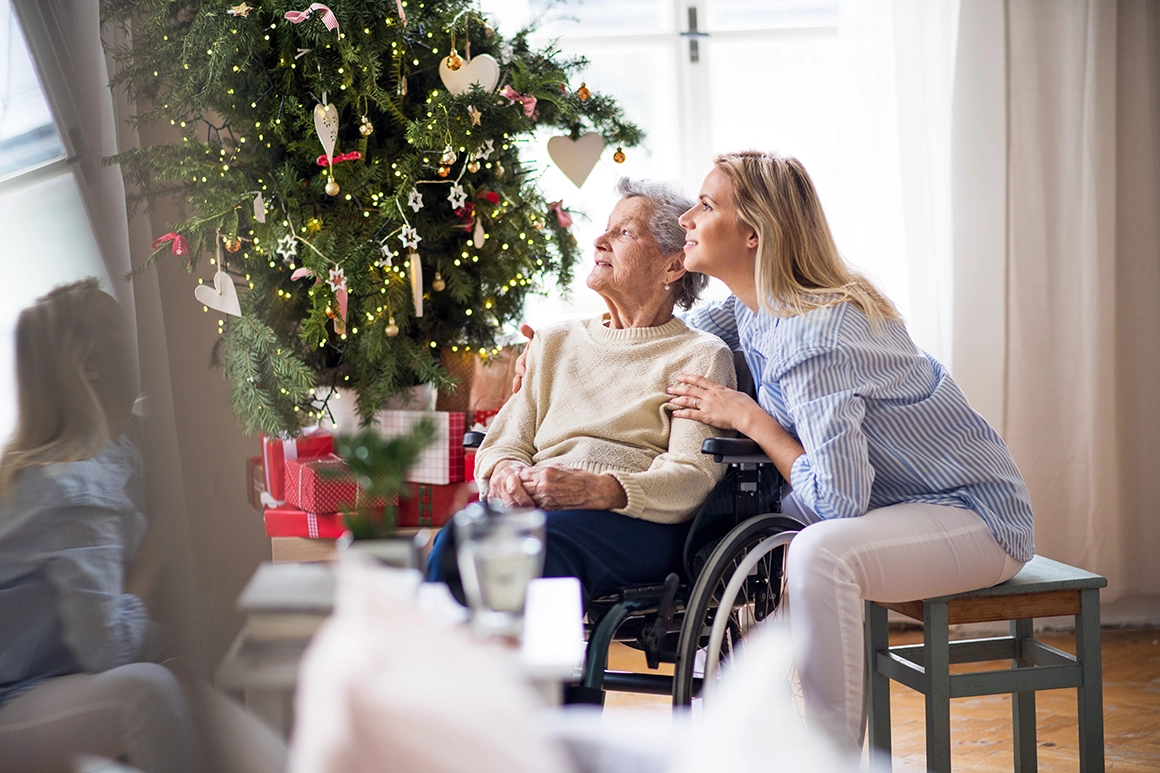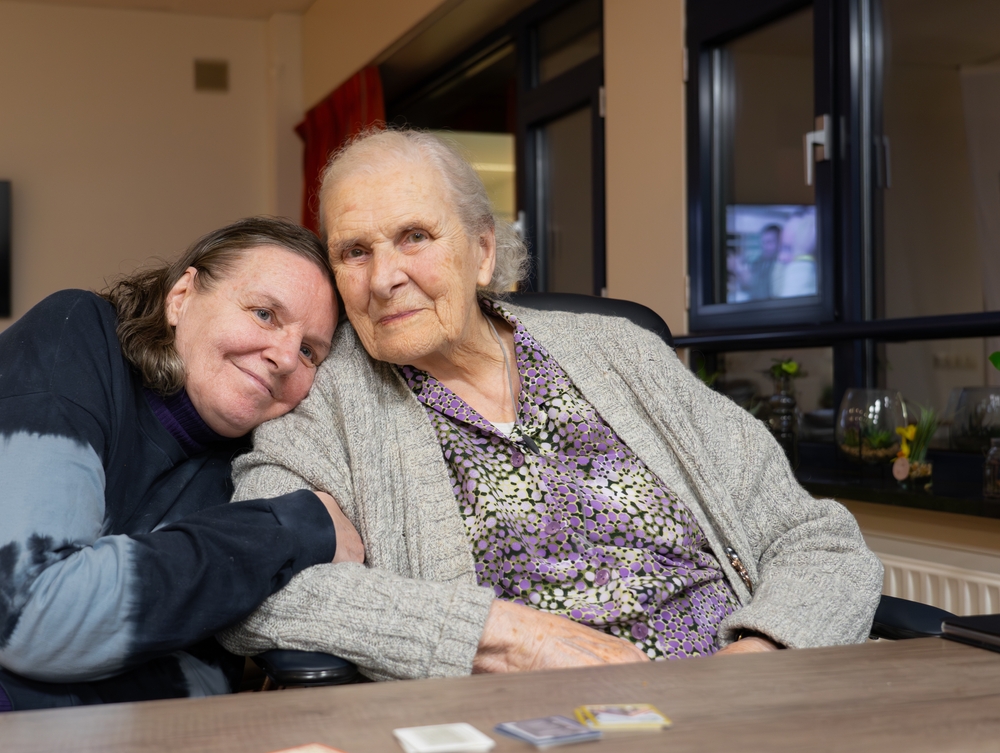
Choosing a nursing home for a loved one is a significant and often challenging decision. The chosen facility will be a place where the prospective resident will spend a considerable amount of time, so it is critical to ensure that its features, amenities, and programs fit the resident’s needs and preferences.
The first step is to take stock of your or your loved one’s unique needs and to do a little research into nursing facilities operating in your area. Online search results, reviews, and rankings will help you to narrow down a manageable list of campuses to visit. This article will offer suggestions of critical questions to ask once you’ve reached the touring phase of finding your or your loved one’s new home.
During a tour, you have the opportunity to observe the environment, meet staff, and gather critical information that can influence your choice. To help you make a well-informed decision, this article will provide a list of essential questions to ask during your nursing home tour. These inquiries will not only clarify the facility’s offerings but will also provide insight into the overall quality of care and community atmosphere present at the nursing home. Whether you’re looking for basic amenities or specialized services, asking the right questions can lead you to the best fit for a prospective resident.
Question 1: What Level of Care Does the Nursing Home Offer?
Understanding the types of care a nursing home offers is crucial when choosing the right facility for a loved one. It’s important to confirm that the nursing home has the capacity to meet a prospective resident’s needs at present and as they change over time. Many facilities offer a range of care levels, including basic assistance with daily activities, skilled nursing care, rehabilitation services, and specialized care for conditions like Alzheimer’s, dementia, MLS, etc.
Typical nursing homes focus on long-term care, while others may offer short-term stays for rehabilitation after an elder has been hospitalized for an injury or ailment in addition to their long-term programs. It’s a good idea to ask how the nursing home manages transitioning residents between one level of care to the next, especially if a resident has a medical condition that is expected to resolve or to progress.
Asking about specific programs in place for memory care, physical therapy, or palliative care can help prospective residents and their families decide if a facility can meet their needs. It’s helpful to inquire about the facility’s approach to individualized care plans—how often they are updated and who is involved in creating them.
Understanding the full scope of care services available will help to ensure the facility is equipped to handle both current and future health needs. These details can provide peace of mind that you or your loved one will receive the right level of care as their needs evolve, without requiring a transfer to another facility.
Question 2: What Does the Typical Day-to-Day Life of a Resident at This Facility Look Like?
A well-rounded nursing home should provide more than just basic care; it should offer opportunities for residents to stay active, engaged, and socially connected. When touring a facility, explore the range of activities and social programs that aim to enhance residents’ well-being, particularly those that promote interactions with fellow residents and with the surrounding community.
Community involvement is key to reducing feelings of isolation, as it allows residents to maintain meaningful connections within and beyond the facility. Many nursing homes facilitate regular visits from local schools, churches, or community groups, giving residents the chance to engage with younger generations or participate in community-driven events.
Volunteer programs, art or music therapy sessions led by local artists, and organized outings to nearby parks, museums, or theaters help residents remain socially active and mentally stimulated. These interactions not only support cognitive health but also provide a sense of purpose and connection.
A robust activities program will encourage family involvement and host events that bring the community and residents together. These strong ties to the community go hand-in-hand with improvements to residents’ quality of life, creating a more enriching and supportive environment.
Question 3: What Safety Measures Does the Facility Have in Place in the Event of Fire, Flood, Intrusion, etc.?
Safety is a top priority when selecting a nursing home, as it directly impacts the well-being and peace of mind of both residents and their families. It’s crucial to understand the safety protocols and systems the facility has in place to prevent accidents and ensure prompt response in case of emergencies.
Many nursing homes are equipped with advanced security systems, such as video surveillance, fire alarms and fire walls, secured entrances (especially around stairwells and parking lots), and alarm systems for residents with cognitive impairments who may wander. It’s a good idea to inquire about the presence of these features, as well as the frequency of safety drills and how the facility ensures compliance with state and federal safety regulations.
In addition to technology systems and drills, the nursing home staff should have the training necessary to respond to all levels of emergency, on both an individual basis and a facility-wide basis. Fall prevention is one critical concern when it comes to the individual safety of a resident, especially for elderly residents with mobility issues. The nursing home should be designed with safety features like handrails in hallways, non-slip flooring, and easily accessible emergency call buttons in both common areas and private rooms. Moreover, the nursing home staff members should all be trained in emergency fall response techniques.
Medication security is also something to look into. It might be useful to ask about how the nursing home manages medication safety and what their protocols look like for administering and tracking medications. Ultimately, a well-maintained and secure facility, combined with a trained and responsive staff, ensures that residents can live comfortably in a safe and supportive environment.
Question 4: What Is Your Hurricane Plan?
Especially in New Orleans and surrounding areas, a nursing home absolutely must have a comprehensive evacuation plan and a comprehensive shelter-in-place plan. In fact, it’s the law. When considering a facility, it’s important to understand how they prepare for and respond to severe weather events like hurricanes.
The evacuation plan should include clear procedures for moving residents to safety, including transportation arrangements, routes, and partnerships with nearby shelters or sister facilities that can accommodate residents during an emergency. It’s crucial to know whether the facility has a reliable communication system to keep families informed throughout the evacuation process and whether they offer real-time updates on residents’ locations and well-being.
Additionally, ask if the nursing home has a detailed protocol for ensuring residents’ medical needs are met during evacuation, such as transporting necessary medications, medical records, and equipment. Staffing during these emergencies is also critical—find out how the facility ensures adequate caregiver support during an evacuation and how they coordinate care for residents with mobility challenges or other special needs.
Some nursing homes are designed to shelter in place, built to withstand severe weather with backup power generators, stocked supplies, and reinforced structures. If this is the case, ensure they have sufficient resources for prolonged isolation, such as food, water, and medical supplies for every resident. Understanding these hurricane preparedness measures ensures that your loved one will be well-protected and cared for in the event of a natural disaster, providing peace of mind for families during uncertain times.
Question 5: What is your staff-to-resident ratio?
The staff-to-resident ratio is a crucial indicator of the quality of care a nursing home can provide. This ratio directly impacts the amount of individualized attention and care each resident receives. A lower ratio (meaning fewer residents per staff member) generally indicates that staff members have more time to dedicate to each resident’s needs, resulting in better overall care.
When inquiring about the staff-to-resident ratio, it’s important to ask about different shifts and weekends, as staffing levels may vary. Also, consider asking about the ratio for different types of staff, such as registered nurses, certified nursing assistants, and other care providers. A well-staffed facility should have adequate coverage across all shifts to ensure consistent care.
It’s also worth asking about staff turnover rates, as high turnover can disrupt continuity of care and may indicate underlying issues with the facility’s management or working conditions. Consistent staffing allows caregivers to become familiar with residents’ individual needs and preferences, leading to more personalized and effective care.
Remember that while a good staff-to-resident ratio is important, it’s not the only factor to consider. The quality of staff training, their experience, and the overall atmosphere of the facility also play significant roles in the quality of care provided.
Question 6: How do you handle medical emergencies?
Understanding how a nursing home handles medical emergencies is crucial for ensuring the safety and well-being of residents. A well-prepared facility should have clear, efficient protocols in place for various types of medical emergencies, from falls to sudden illnesses.
Ask about the presence of medical staff on-site, particularly whether there are registered nurses available 24/7. Inquire about the proximity of the nearest hospital and the facility’s relationship with local emergency services. Some nursing homes have arrangements with nearby hospitals for quick transfers when necessary.
It’s also important to understand the facility’s communication process during emergencies. How quickly are family members notified, and what information is shared? Ask about the decision-making process in emergencies, especially regarding when to transfer a resident to a hospital.
Additionally, inquire about staff training for emergency situations. All staff members, not just medical personnel, should be trained in basic first aid and CPR. Some facilities conduct regular emergency drills to ensure staff are prepared to respond quickly and effectively in crisis situations.
Understanding these procedures can provide peace of mind that your loved one will receive prompt and appropriate care in case of a medical emergency.
Question 7: What do the rooms look like? Are they private or shared?
The living space of a nursing home resident significantly impacts their comfort, privacy, and overall quality of life. When touring a facility, it’s essential to see different room options and understand what’s available within your budget.
Ask to see both private and shared rooms, if available. Private rooms offer more personal space and privacy, which can be particularly important for residents who value solitude or have specific medical needs. Shared rooms, while often more affordable, can provide companionship and may be preferable for some residents.
Pay attention to the size of the rooms, natural lighting, and views from the windows. Inquire about the ability to personalize the space with familiar items from home, such as furniture, photos, or decorations. This can help create a more comforting and home-like environment for the resident.
It’s also important to ask about the amenities within the rooms. Are there private bathrooms? What about televisions, phones, or internet access? Understanding these details can help you gauge how comfortable and connected your loved one will be in their new living space.
Don’t forget to inquire about the cleaning schedule and maintenance of the rooms. Regular cleaning and prompt maintenance are crucial for maintaining a healthy and comfortable living environment.
Question 8: Can I see a sample meal plan?
Nutrition plays a vital role in the health and well-being of nursing home residents. Requesting to see a sample meal plan can give you insight into the quality, variety, and nutritional value of the food served at the facility.
Ask to see menus for different days of the week to gauge the variety of meals offered. Inquire about how often the menu rotates and whether seasonal items are incorporated. It’s also important to understand how the facility accommodates special dietary needs, such as low-sodium diets, diabetic-friendly meals, or texture-modified foods for residents with swallowing difficulties.
Consider asking about the qualifications of the staff responsible for meal planning. Many quality nursing homes employ registered dietitians to ensure meals are nutritionally balanced and appropriate for residents’ health needs.
It’s also worth inquiring about meal times and the dining experience. Are meals served in a communal dining area, or do residents have the option to eat in their rooms? Is there flexibility in meal times to accommodate different schedules or preferences?
Lastly, ask if family members are allowed to join residents for meals occasionally. This can be a nice way for families to spend time together and experience the dining options firsthand.
Question 9: How do you involve family members in care decisions?
Family involvement is crucial in ensuring that residents receive personalized care that aligns with their preferences and values. Understanding how a nursing home facilitates family participation in care decisions can give you insight into their approach to resident-centered care.
Ask about the frequency and nature of family meetings or care conferences. Many facilities hold regular meetings where family members can discuss the resident’s care plan with staff members. Inquire about who typically attends these meetings – are physicians, nurses, and other care providers present?
It’s also important to understand how the facility communicates with family members between these formal meetings. Do they have a system for regular updates? How are families notified about changes in the resident’s condition or care plan?
Ask about the facility’s policy on family visits and participation in daily care. Some nursing homes encourage family members to be involved in activities or even assist with certain aspects of care if they wish.
Finally, inquire about the process for addressing concerns or making requests regarding a resident’s care. A good facility should have clear channels for family feedback and be responsive to family input.
Question 10: Do you have any resident or family testimonials handy?
Testimonials from current residents or their family members can provide valuable insights into the day-to-day experiences and overall satisfaction with the nursing home. While facilities often present their best face during tours, hearing from those who live there or have loved ones residing in the facility can offer a more authentic perspective.
When asking for testimonials, inquire if it’s possible to speak directly with current residents or family members. Some facilities may have a program where prospective residents can chat with current ones. This can provide an opportunity to ask questions and get unfiltered responses about life in the nursing home.
If direct conversations aren’t possible, ask if the facility has written testimonials or reviews they can share. Look for testimonials that speak to various aspects of care and life in the facility, such as the quality of medical care, the friendliness of staff, the variety of activities, and the overall atmosphere.
It’s also worth asking if the facility conducts regular satisfaction surveys among residents and families, and if they’re willing to share the results. This can give you an idea of overall satisfaction levels and how the facility responds to feedback.
Remember, while testimonials can be helpful, they should be considered alongside other factors in your decision-making process. Each resident’s experience is unique, and what works well for one person may not be ideal for another.
Question 11: What are the costs and payment options?
Understanding the financial aspects of nursing home care is crucial for long-term planning. Costs can vary significantly depending on the level of care required, the type of room, and the specific services provided. It’s important to get a clear picture of all potential expenses to avoid surprises down the line.
Ask for a detailed breakdown of costs, including the basic rate and any additional charges for specific services or levels of care. Inquire about how often rates typically increase and what factors might lead to cost changes.
It’s also important to understand what’s included in the basic rate and what services might incur extra charges. For example, are medications, personal care items, or therapy services included, or are they billed separately?
Regarding payment options, ask about the forms of payment the facility accepts. Many nursing homes work with various funding sources, including private pay, long-term care insurance, Medicare, and Medicaid. If you’re considering using Medicaid, confirm that the facility is Medicaid-certified and ask about their process for transitioning from private pay to Medicaid if needed.
Some facilities offer financial assistance programs or sliding scale fees based on income. Don’t hesitate to ask if such options are available. Additionally, inquire about the facility’s policy regarding holding a room if a resident needs to be hospitalized temporarily.
Understanding the financial aspects thoroughly can help you plan effectively and choose a facility that provides the best care within your budget. It’s often helpful to consult with a financial advisor or elder law attorney to fully understand your options and make the best decision for your situation.
Conclusion
Choosing the right nursing home is not just about finding a place that meets basic care needs—it’s about ensuring your loved one’s dignity, humanity, and overall quality of life are preserved. Asking the right questions during a tour can help you assess whether the facility will be a natural fit for your loved one.
Understanding the types of care provided ensures that the nursing home is prepared to support both current and future health requirements, but it’s equally important to see how they approach individualized care with compassion and respect for each resident’s unique needs. Social engagement, particularly through activities that connect residents with the surrounding community, is crucial for maintaining a sense of purpose and belonging.
A nursing home should prioritize not only physical safety but also emotional and psychological well-being, fostering an environment where residents feel valued and connected. Safety protocols, while essential, should be part of a broader commitment to providing a secure and nurturing environment where residents can thrive with dignity. In regions vulnerable to hurricanes or natural disasters, a well-structured evacuation plan is another reflection of a nursing home’s dedication to safeguarding both the well-being and humanity of its residents.
The staff-to-resident ratio and the facility’s approach to handling medical emergencies are critical factors that directly impact the quality of care. A well-staffed nursing home with clear emergency protocols can provide peace of mind that your loved one will receive prompt and attentive care when needed.
The living environment, including room options and meal plans, significantly affects a resident’s daily life and overall satisfaction. Personalized spaces and nutritious, varied meals can greatly enhance the comfort and well-being of residents.
Family involvement in care decisions is crucial for ensuring that the care provided aligns with the resident’s preferences and values. A facility that encourages family participation and maintains open lines of communication can foster a collaborative approach to care.
Testimonials from current residents and their families can offer valuable insights into the day-to-day experiences at the nursing home, providing a more authentic perspective beyond what you might see during a tour.
Finally, understanding the costs and payment options is essential for long-term planning. Clear information about expenses and available financial assistance can help you make an informed decision that balances quality of care with financial sustainability.
Remember, each question you ask during a nursing home tour brings you closer to finding the right fit for your loved one. Take your time, trust your instincts, and don’t hesitate to ask for clarification or additional information. Your diligence in this process can lead to finding a nursing home that not only meets basic care needs but also provides a supportive, engaging, and dignified environment for your loved one to thrive.
Selecting the right nursing home means choosing a place where care is given with respect, compassion, and a deep understanding of the importance of maintaining each resident’s dignity, autonomy, and quality of life. By asking these essential questions and carefully considering the answers, you can make a well-informed decision that ensures the best possible care and quality of life for your loved one in their new home.









